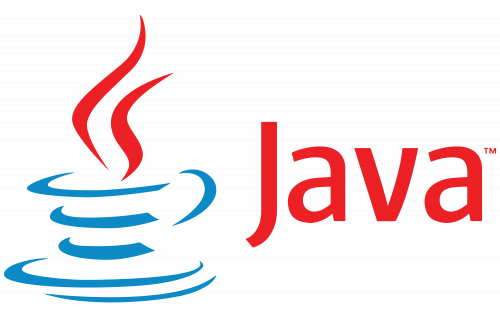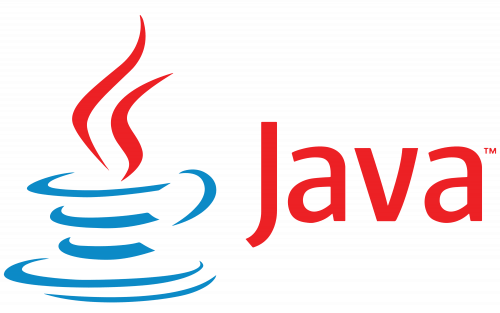Java Mastery Unleashed: 12 Essential Tips Every Developer Must Embrace
 Anil Gulati
Anil GulatiTable of contents
- 1. Embrace the Power of Lambda Expressions
- 2. Bid Farewell to Nulls with Optionals
- 3. Streamline Collection Operations with Streams
- 4. String Concatenation Made Efficient with String.format
- 5. Harness the Power of Immutable Objects
- 6. Default Methods: Extending Interfaces Gracefully
- 7. Use Reflection Sparingly
- 8. Enumerations: More than Just Constants
- 9. Try-With-Resources for Resource Management
- 10. Elevate Code Clarity with Javadoc
- 11. Foster Loose Coupling with Dependency Injection
- 12. Ensure Code Quality with Unit Testing


Java, with its expansive influence in the programming universe, serves as the bedrock for countless complex software systems and applications. To thrive as a Java developer in today’s ever-evolving landscape, you must stay ahead of the curve and wield the latest tricks and techniques in your arsenal. In this blog post, we’ll uncover eight indispensable Java programming gems every developer should have in their toolkit. Plus, we’ll explore real-world examples to make these tips come alive and show you how hiring expert Java developers can help you put them into practice swiftly.
1. Embrace the Power of Lambda Expressions
Lambda expressions, introduced in Java 8, are a game-changer for Java developers. They enable you to write concise, functional-style code while reducing the boilerplate. Let’s breathe life into this concept with a real-world scenario:
Before:
List<String> names = new ArrayList<>();
for (Person person : people) {
names.add(person.getName());
}
After:
List<String> names = people.stream()
.map(Person::getName)
.collect(Collectors.toList());
This code not only slashes lines but also boosts code readability and maintainability.
2. Bid Farewell to Nulls with Optionals
Nulls often lurk as a source of peril in Java code, giving rise to dreaded NullPointerExceptions. Enter the “Optional” class — your knight in shining armor. It offers a safer and more elegant way to handle nulls:
Optional<String> maybeName = Optional.ofNullable(person.getName());
String name = maybeName.orElse("Unknown");
3. Streamline Collection Operations with Streams
Streams are a powerhouse for simplifying collection operations. They offer an elegant alternative to clunky loops and temporary collections:
List<Integer> evenNumbers = numbers.stream()
.filter(num -> num % 2 == 0)
.collect(Collectors.toList());
With streams, your code becomes more elegant and easier to maintain.
4. String Concatenation Made Efficient with String.format
String concatenation can be a performance bottleneck. Opt for String.format instead of the '+' operator for better efficiency:
String s1 = "Hello";
String s2 = " World";
String s = String.format("%s%s", s1, s2);
5. Harness the Power of Immutable Objects
Immutable objects bring peace to multithreaded code by eliminating the need for locks or synchronization. Here’s a practical example:
String name = "baeldung";
String newName = name.replace("dung", "----");
6. Default Methods: Extending Interfaces Gracefully
Default methods, a Java 8 gift, allow you to enhance interfaces without breaking existing implementations. This promotes flexibility and maintainability:
import java.time.LocalDateTime;
public interface TimeClient {
void setTime(int hour, int minute, int second);
void setDate(int day, int month, int year);
void setDateAndTime(int day, int month, int year, int hour, int minute, int second);
LocalDateTime getLocalDateTime();
}
7. Use Reflection Sparingly
Reflection is a potent yet perilous tool. Employ it with caution, and only when absolutely necessary. Prefer other Java features like interfaces whenever possible:
import java.lang.reflect.*;
public class DumpMethods {
public static void main(String args[]) {
try {
Class<?> c = Class.forName(args[0]);
Method m[] = c.getDeclaredMethods();
for (Method method : m) {
System.out.println(method.toString());
}
} catch (Throwable e) {
System.err.println(e);
}
}
}
8. Enumerations: More than Just Constants
Enumerations are your go-to choice for representing constants with flair:
public class Main {
enum Level { LOW, MEDIUM, HIGH }
public static void main(String[] args) {
Level myVar = Level.MEDIUM;
System.out.println(myVar);
}
}
9. Try-With-Resources for Resource Management
Java 7 introduced Try-With-Resources to streamline resource management. It ensures that resources like files, sockets, and database connections are automatically closed when no longer needed:
try (FileReader fileReader = new FileReader("example.txt");
BufferedReader bufferedReader = new BufferedReader(fileReader)) {
String line = bufferedReader.readLine();
// Process the file
} catch (IOException e) {
// Handle the exception
}
10. Elevate Code Clarity with Javadoc
Javadoc is your go-to tool for creating professional documentation for your code. It enhances code understanding and detects potential issues:
/**
* This class represents a Customer object.
*/
public class Customer {
// Fields and methods
}
11. Foster Loose Coupling with Dependency Injection
Dependency Injection promotes loose coupling between components, enhancing flexibility and testability. Here’s a simplified example:
public class PaymentService {
private PaymentGateway gateway;
// Constructor injection
public PaymentService(PaymentGateway gateway) {
this.gateway = gateway;
}
public void processPayment() {
// Use the gateway to process payment
}
}
12. Ensure Code Quality with Unit Testing
Unit Testing is your guardian against bugs and unexpected side effects. It’s vital for producing top-notch, reliable code:
import org.junit.jupiter.api.Test;
import static org.junit.jupiter.api.Assertions.*;
public class MathUtilsTest {
@Test
void testAddition() {
int result = MathUtils.add(2, 3);
assertEquals(5, result);
}
}
In conclusion, these Java programming gems can elevate your code quality and efficiency, and keep you in sync with the latest trends. For swift implementation, consider hiring experienced Java developers who can bring these techniques to life in your projects. Mastering Java has never been more exciting!
Enjoyed This Article?
If you enjoy reading this post, got help, knowledge through it, and want to support my efforts please clap this article and follow.
To explore more of my work, visit my portfolio at anilgulati.com
Subscribe to my newsletter
Read articles from Anil Gulati directly inside your inbox. Subscribe to the newsletter, and don't miss out.
Written by

Anil Gulati
Anil Gulati
Associate Software Engineer @YMSLI | Ex-SDE@Onelab Ventures | Full Stack Developer| Freelancer | Bibliophile | Technical Head @DITU ACM SC |